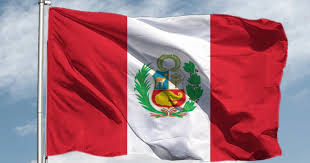KABUL, Feb 15 (NNN-XINHUA) – Washington’s decision on splitting frozen Afghan assets in the United States, has sparked an outcry among ordinary Afghans, who believe the verdict would exacerbate the already dire humanitarian crisis.
U.S. President, Joe Biden, signed an executive order on Friday, to free seven billion U.S. dollars out of more than nine billion frozen Afghan assets, splitting the money between humanitarian aid for cash-strapped Afghanistan and a fund for 9/11 victims.
Massiullah, a shop owner in Kabul, said, Afghans want all of their assets, frozen by the United States, not part of it. “It is immoral, and an act of extortion to seize money of a poor people. In all civilisation, it is not allowed to interfere in the internal or financial issues of a country.”
The “illogic decision” will directly have a negative impact on the livelihood of people, he said.
“The owners of those frozen assets are Afghans, the United States has no authority to decide on another nation’s fate. Afghan children are suffering from malnutrition,” he said.
Massiullah’s concern was echoed by Abdul Nasir Rishtia, a well-known economic analyst, who said, “A country’s foreign exchange reserves bankroll the country’s financial system and national currency. The latest U.S. decision over Afghan assets risks triggering the collapse of the Afghan currency and could serve like a death sentence for financial and banking system.”
The freezing of Afghan assets has caused a banking crisis. After the change of government in Aug, 2021, the Afghan central bank issued an order to all banks, setting a temporary withdrawal limit of 200 dollars, or 20,000 afghanis, for one customer every week. The customers still do not have access to their savings.
“The assets belong to Afghanistan, from a legal point of view, the United States has no authority to make decisions on Afghans’ assets. It will be the biggest and most irreparable blow to Afghanistan’s economy, the move will have a negative impact on the life of the Afghan business community and the private sector as well,” Rishtia, chief executive of Afghanistan Steel Mills Union, told Xinhua.
Hours after the announcement of the order, Mohammad Naeem, a spokesman of the Taliban political office in Qatar, criticised the decision.
“Stealing the blocked funds of Afghan nation by the U.S. and its seizure is indicative of the lowest level of human and moral decay of a country and a nation,” Naeem wrote on Twitter.
Daud Nejrabi, a correspondent in Afghanistan, believes that the move would further deepen the quagmire of Afghanistan and its people. “The Biden administration’s decision to split Afghan assets is against international norms,” he said.
“We will raise our opposition to the politicisation of humanitarian issues. The already dire situation faced by Afghan civilians will get worse, and the humanitarian needs of children and women will increase over the coming months,” Abdul Sami, a Kabul resident, who came from eastern Panjshir province, told Xinhua.
“This issue will directly be a big blow to Afghans, it will have a negative impact on the livelihood and life of every Afghan,” Sami said.
“It is not logic, it is a wrong decision to punish people who are innocent, who are victims of war and invasion. Afghans did not have any role in the 9/11 attacks, the compensation for the 9/11 attacks should be taken from those who were responsible, Afghans are the victims of U.S. invasion themselves,” he said.
Who will have “to pay compensation for hundreds of thousands of Afghans killed and wounded during the U.S. invasion? Afghanistan’s national bank reserves belong to the people of Afghanistan. Only Afghans can decide on the fate of their assets,” Sami added.
The current Afghan crisis has forced millions of Afghans to search for jobs in neighbouring Iran and Pakistan, as well as, other countries.– NNN-XINHUA




